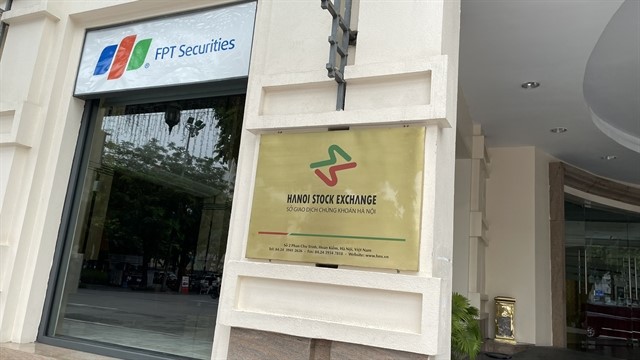Deducting all expenses and taxes, it posted a net profit of VNĐ1.92 trillion, down 8 per cent from the year before.

The Vietnam Stock Exchange (VNX) reported a decrease of 11 per cent year-on-year in net revenue to more than VNĐ3 trillion, according to the audited consolidated financial statements for 2023. The majority of VNX's revenue came from securities trading services.
Last year, VNX saw declines across various expense categories, including finance and management costs. However, the exchange's other expenses surged by more than four times.
Deducting all expenses and taxes, it posted a net profit of VNĐ1.92 trillion, down 8 per cent from the year before. This marks the first time the exchange has reported negative performance in both revenue and profitability.
As of the end of 2023, VNX's total assets reached approximately VNĐ4 trillion, with nearly 50 per cent of the value in the form of bank deposits. This contributed to its recording VNĐ163 billion in interest income, up 58 per cent on year.
VNX was established in February 2021 with a charter capital of VNĐ3 trillion. It is a 100 per cent State-owned limited liability company, operating under a parent-subsidiary model formed by reorganising the Hồ Chí Minh and Hà Nội stock exchanges.
Its main role is to unify the organisational structure, policies and IT infrastructure to serve the market.
In its first year, the exchange reported revenue of over VNĐ2 trillion and net profit of VNĐ1.3 trillion. The figure surged to VNĐ3.4 trillion in revenue and VNĐ2.1 trillion in profit in 2022, driven by a strong stock market performance.
For 2024, VNX has set targets of nearly VNĐ2.8 trillion in revenue, down 9 per cent and VNĐ1.4 trillion in net profit, down 26 per cent. It also plans to contribute over VNĐ1.7 trillion to the State budget in taxes. — VNS





